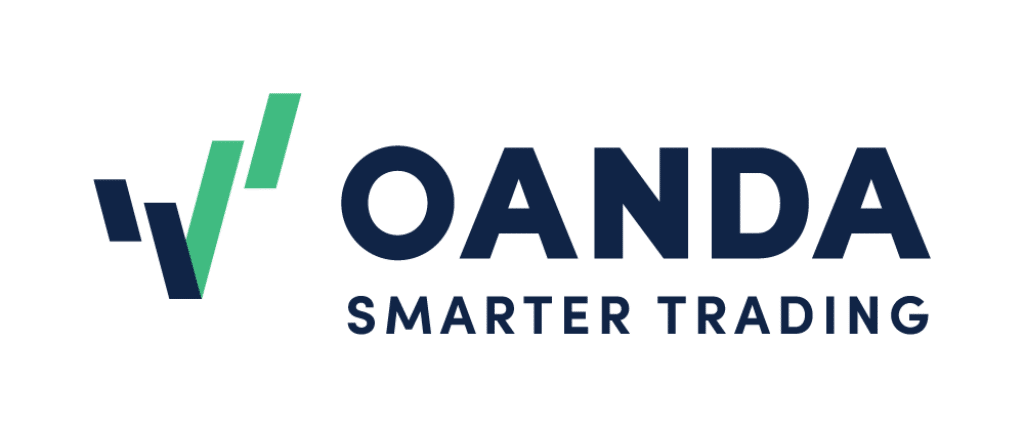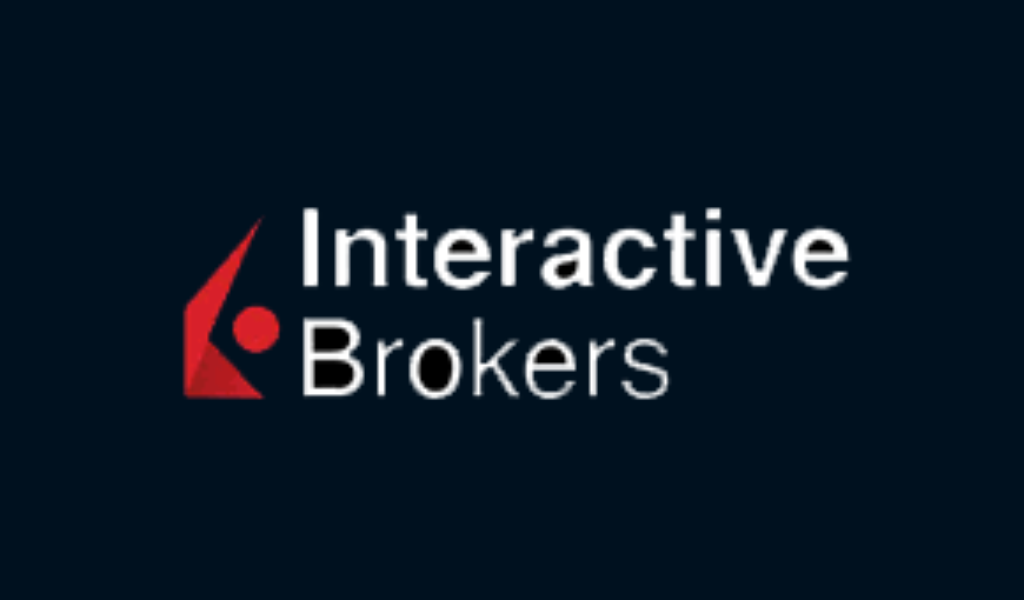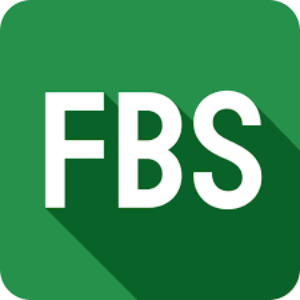
Are you looking to start your forex trading journey but feeling overwhelmed by the countless broker options? You’re not alone. As a beginner in the forex market, choosing the right broker can make the difference between a smooth learning experience and a frustrating one. That’s why we’ve compiled this comprehensive guide to the best forex brokers for beginners.
Best Forex Brokers for Beginners 2024
Comprehensive comparison of the top 7 forex trading platforms for new traders
Best for Beginners
Key Selection Criteria
Important Note: Trading forex carries significant risks and may not be suitable for all investors. Ensure you fully understand the risks involved and seek independent advice if necessary. Past performance is not indicative of future results.
Top 7 Best Forex Brokers for Beginners
1. eToro
Best for: Social Trading and Copy Trading

When it comes to the best forex brokers for beginners in US markets, eToro stands out with its innovative social trading features. Like having a trading mentor right at your fingertips, their CopyTrader feature allows newcomers to mirror the trades of successful traders.
- Minimum Deposit: $50
- Regulation: FCA, CySEC, ASIC
- Notable Features:
- Social trading network
- User-friendly mobile app
- Extensive educational resources
- Commission-free trading
2. Plus500
Best for: User-Friendly Platform

For those seeking the best forex brokers in Canada for beginners, Plus500 offers an intuitive platform that makes trading accessible. Their streamlined interface is like having a well-organized dashboard that puts everything you need within easy reach.
- Minimum Deposit: $100
- Regulation: FCA, ASIC, MAS
- Highlights:
- Simple, clean interface
- Risk management tools
- Free demo account
- 24/7 customer support
3. XM
Best for: Educational Resources

Among the best forex brokers for beginners in South Africa, XM excels in educational content. Their learning platform is like having a private trading school at your disposal.
- Minimum Deposit: $5
- Regulation: CySEC, ASIC, IFSC
- Key Features:
- Extensive video tutorials
- Personal account managers
- Multiple platform options
- Regular webinars
4. Pepperstone
Best for: Advanced Platform Options

When looking for the best forex brokers for beginners UK traders can access, Pepperstone offers a perfect blend of simplicity and sophistication. It’s like having training wheels that you can remove as you become more confident.
- Minimum Deposit: $200
- Regulation: FCA, ASIC, DFSA
- Standout Features:
- Multiple trading platforms
- Fast execution speeds
- Competitive spreads
- Expert research tools
5. FXCM
Best for: Research Tools

For those searching for the best brokers for forex beginners, FXCM provides comprehensive research tools that help make informed trading decisions. It’s like having a trading analyst in your pocket.
- Minimum Deposit: $50
- Regulation: FCA, ASIC
- Notable Aspects:
- Advanced charts
- Trading signals
- Market analysis
- Mobile trading
6. OANDA
Best for: Competitive Pricing

Among the best brokers for forex trading beginners, OANDA stands out with its transparent pricing structure. Think of it as a no-hidden-fees approach to trading.
- Minimum Deposit: $0
- Regulation: FCA, CFTC, ASIC
- Key Benefits:
- Competitive spreads
- Automated trading options
- Advanced charting
- Historical position ratios
7. Interactive Brokers
Best for: Global Market Access

Rounding out our list of best brokers for beginners forex, Interactive Brokers offers extensive market access. It’s like having a passport to global trading opportunities.
- Minimum Deposit: $0
- Regulation: Multiple global regulators
- Distinctive Features:
- Global market access
- Professional-grade tools
- Extensive research
- Competitive rates
How to Choose the Right Broker for You
When selecting from the best forex brokers for beginners in 2024, consider these factors:
- Regulatory Compliance Ensure your chosen broker is properly regulated in your jurisdiction. This is your safety net in the trading world.
- Platform Usability The platform should feel intuitive and accessible. If you’re struggling with the demo version, consider it a red flag.
- Educational Resources Look for brokers that invest in your learning journey with quality educational materials.
- Customer Support Reliable support is crucial when you’re starting out. Test their responsiveness before committing.
- Cost Structure Understanding the fee structure is essential. Look for transparent pricing with reasonable spreads.
Regional Considerations
When choosing the best forex brokers for beginners, your geographical location plays a crucial role in determining which brokers you can access and what regulations apply to your trading activities. Let’s explore the specific considerations for different regions.
United States Market
The United States maintains some of the strictest forex trading regulations globally, making it crucial to choose from the best forex brokers in USA for beginners who fully comply with local laws. All forex brokers operating in the US must register with the National Futures Association (NFA) and the Commodity Futures Trading Commission (CFTC).
American traders face unique restrictions, including the limitation on leverage ratios to 50:1 for major currency pairs and 20:1 for minor pairs. Additionally, FIFO (First In, First Out) rules apply to all trades, and hedging within the same currency pair is prohibited.
| Aspect | US Requirements |
|---|---|
| Required Registrations | NFA and CFTC |
| Maximum Leverage | 50:1 (majors), 20:1 (minors) |
| Minimum Capital Requirements | $20 million |
| Account Protection | Up to $250,000 (SIPC) |
| Trading Rules | FIFO required, no hedging |
United Kingdom Market
For traders seeking the best forex brokers for beginners UK offers a well-regulated and sophisticated market. The Financial Conduct Authority (FCA) oversees forex trading in the UK, providing robust investor protection and maintaining market integrity. Post-Brexit changes have introduced new considerations for UK traders.
UK brokers must comply with strict capital requirements and maintain segregated client funds. The UK’s regulatory framework also includes negative balance protection and standardized risk warnings. Retail traders benefit from leverage restrictions that protect them from excessive risk.
| Aspect | UK Requirements |
|---|---|
| Primary Regulator | FCA |
| Maximum Leverage | 30:1 (majors), 20:1 (minors) |
| Client Money Protection | Up to £85,000 (FSCS) |
| Account Segregation | Mandatory |
| Negative Balance Protection | Required |
Canadian Market
The best forex brokers in Canada for beginners operate under the oversight of the Investment Industry Regulatory Organization of Canada (IIROC). Canadian traders benefit from a well-regulated environment that combines elements of both US and UK systems while maintaining its unique characteristics.
Canadian brokers must provide detailed risk disclosure statements and maintain substantial capital reserves. The regulatory framework emphasizes transparency and fair trading practices, though leverage restrictions are generally more flexible than in the US or UK.
| Aspect | Canadian Requirements |
|---|---|
| Primary Regulator | IIROC |
| Capital Requirements | Minimum $5 million |
| Client Protection | CIPF up to CAD 1 million |
| Account Types | Multiple currency options |
| Leverage Limits | Varies by broker |
South African Market
For those seeking the best forex brokers for beginners in South Africa, the Financial Sector Conduct Authority (FSCA) provides regulatory oversight. The South African forex market has grown significantly in recent years, offering traders a blend of international access and local market understanding.
South African traders should be particularly aware of currency controls and tax implications. The market offers competitive spreads and diverse trading options, though regulatory protection may not be as comprehensive as in more established markets.
| Aspect | South African Requirements |
|---|---|
| Primary Regulator | FSCA |
| Currency Controls | Subject to SARB regulations |
| Tax Considerations | Must declare forex profits |
| Account Options | ZAR-denominated accounts |
| Trading Hours | Aligned with major markets |
European Union Markets
While not specifically mentioned in the keywords, it’s worth noting that European traders face distinct regulations under ESMA guidelines. These regulations affect many of the best brokers for forex trading beginners who operate globally.
| Aspect | EU Requirements |
|---|---|
| Primary Regulator | ESMA + National regulators |
| Maximum Leverage | 30:1 (majors), 20:1 (minors) |
| Negative Balance Protection | Mandatory |
| Risk Warnings | Standardized format |
| Client Categorization | Retail/Professional/Eligible |
Cross-Border Considerations
When choosing the best brokers for beginners forex, consider these cross-border factors:
- Payment Methods Different regions support various payment methods, affecting deposit and withdrawal options:
| Region | Common Payment Methods | Processing Time |
|---|---|---|
| US | Bank Transfer, Credit Cards | 1-5 business days |
| UK | Bank Transfer, Cards, E-wallets | 1-3 business days |
| Canada | Interac, Wire Transfer, Cards | 1-4 business days |
| South Africa | Local Bank Transfer, Cards | 2-5 business days |
- Time Zones and Market Access Your location affects your access to market hours and liquidity:
| Region | Primary Trading Sessions | Typical Spreads |
|---|---|---|
| US | New York, London overlap | Tighter during US hours |
| UK | London, European hours | Optimal during London session |
| Canada | NY, London overlap | Benefits from US liquidity |
| South Africa | London, Asian overlap | Varies by session |
- Tax Implications Different regions handle forex trading profits differently:
| Region | Tax Structure | Reporting Requirements |
|---|---|---|
| US | Section 1256 contracts (60/40 rule) | Annual reporting required |
| UK | Capital Gains Tax or Income Tax | Self-assessment necessary |
| Canada | Capital Gains or Business Income | CRA reporting mandatory |
| South Africa | Income Tax | Must declare as income |
Remember that the best forex brokers for beginners will typically assist with regional compliance requirements and provide appropriate documentation for tax purposes. Always consult with local financial advisors and tax professionals to ensure compliance with regional regulations.
For Canadian Traders
The best forex brokers in Canada for beginners should be IIROC-regulated and offer CAD-denominated accounts.
Risk Management Tips for Beginners
Understanding risk management is like having a safety net while learning to walk the trading tightrope. For those using the best forex brokers for beginners, these comprehensive risk management strategies are essential for long-term success.
1. Master the Demo Account
Before risking real capital, spend at least 1-2 months on a demo account:
- Practice different trading strategies
- Learn platform features without pressure
- Develop emotional discipline
- Track your virtual performance
- Test various position sizes
2. Implement Strategic Stop-Loss Orders
Think of stop-loss orders as your trading insurance policy:
- Place stops at technically significant levels
- Avoid placing stops at obvious round numbers
- Consider using trailing stops to protect profits
- Never trade without a stop-loss in place
- Calculate your stop distance based on market volatility
3. Position Sizing and Risk Percentage
Protect your capital by following these guidelines:
- Never risk more than 1-2% of your account on a single trade
- Calculate position sizes before entering trades
- Consider reducing risk to 0.5% while learning
- Use a position size calculator
- Account for leverage when determining position size
4. Keep Detailed Trading Journals
Document your journey meticulously:
- Record entry and exit points
- Note your emotional state during trades
- Track market conditions
- Document your reasoning for each trade
- Review journals weekly to identify patterns
5. Understanding and Managing Leverage
Leverage is a double-edged sword:
- Start with minimal leverage (1:10 or lower)
- Understand how leverage affects margin
- Calculate potential losses before using leverage
- Never use maximum available leverage
- Reduce leverage during volatile market conditions
6. Set Realistic Profit Targets
Maintain a balanced approach to profits:
- Use a minimum 1:2 risk-reward ratio
- Set targets based on technical levels
- Don’t get greedy with profit targets
- Consider taking partial profits
- Use profit targets that align with your strategy
7. Manage Your Trading Psychology
Emotional control is crucial:
- Develop a trading plan and stick to it
- Accept losses as part of trading
- Avoid revenge trading after losses
- Take breaks after losing streaks
- Celebrate disciplined trading, not just profits
8. Diversification Strategies
Don’t put all your eggs in one basket:
- Trade different currency pairs
- Avoid highly correlated pairs
- Consider varying timeframes
- Mix trading strategies
- Balance high and low-risk trades
9. Risk Management Tools
Utilize your broker’s risk management features:
- Guaranteed stop-loss orders (if available)
- Take-profit orders
- Risk calculator tools
- Margin calculators
- Position size calculators
10. Regular Account Review
Monitor your trading performance:
- Review your win-rate weekly
- Calculate average wins vs. losses
- Monitor maximum drawdown
- Assess risk-adjusted returns
- Adjust strategies based on performance
11. Market Condition Awareness
Adapt your risk management to market conditions:
- Reduce position sizes during high volatility
- Avoid trading during major news events
- Be aware of market hours and liquidity
- Monitor correlation between pairs
- Understand seasonal market patterns
12. Building a Risk Management Routine
Create a pre-trade checklist:
- Confirm current market conditions
- Check economic calendar
- Verify position size calculations
- Ensure stop-loss and take-profit levels
- Review available margin
- Assess overall portfolio exposure
Remember, successful risk management is about consistency and discipline. The best forex brokers for beginners often provide tools and resources to help implement these strategies effectively. Start with conservative risk parameters and gradually adjust as you gain experience and confidence in your trading abilities.
Getting Started: Your First Steps
- Choose Your Broker Select from our list of best forex brokers for beginners based on your specific needs.
- Open a Demo Account Practice with virtual money before committing real capital.
- Education First Utilize your chosen broker’s educational resources.
- Start Small Begin with minimal capital while you learn the ropes.
- Regular Review Monitor your progress and adjust your strategy as needed.
Conclusion
Choosing from the best forex brokers for beginners doesn’t have to be overwhelming. By focusing on regulated brokers with strong educational resources, user-friendly platforms, and reliable customer support, you can find the perfect partner for your trading journey.
Remember, the best brokers for forex trading beginners are those that align with your specific needs and learning style. Take your time to explore demo accounts, compare features, and read user reviews before making your final decision.
Start your forex trading journey with confidence by choosing one of these recommended brokers, and always remember to trade responsibly and within your means.
Disclaimer: Trading forex carries significant risks and may not be suitable for all investors. Please ensure that you fully understand the risks involved and seek independent advice if necessary.








